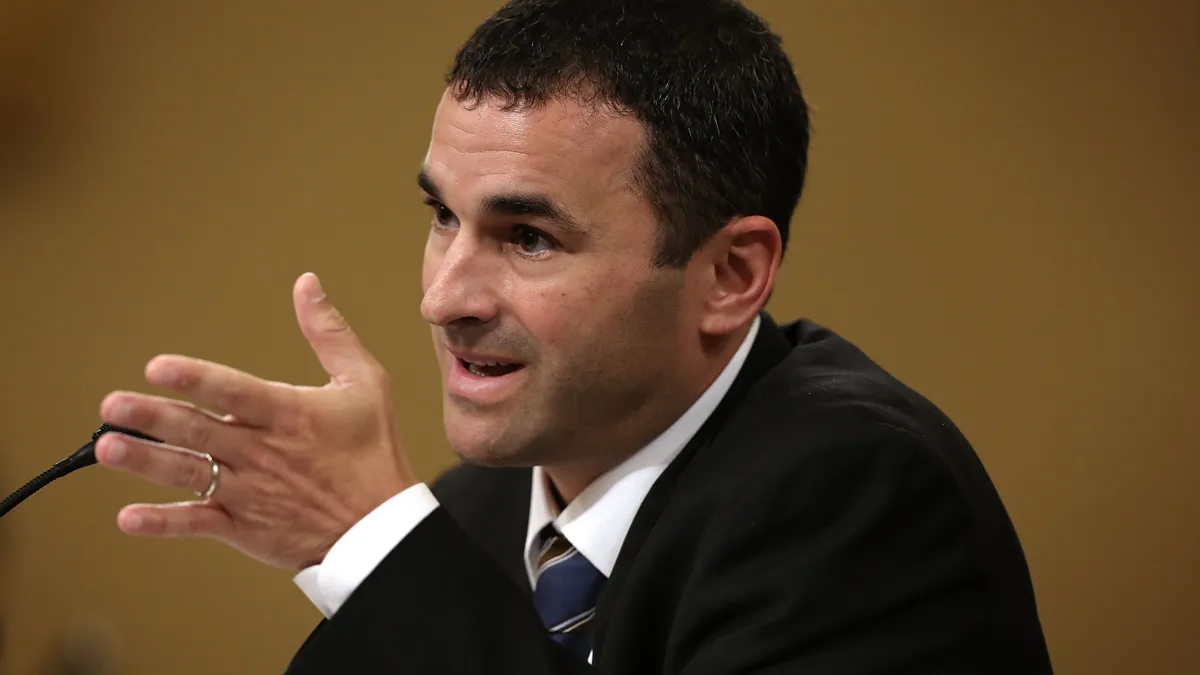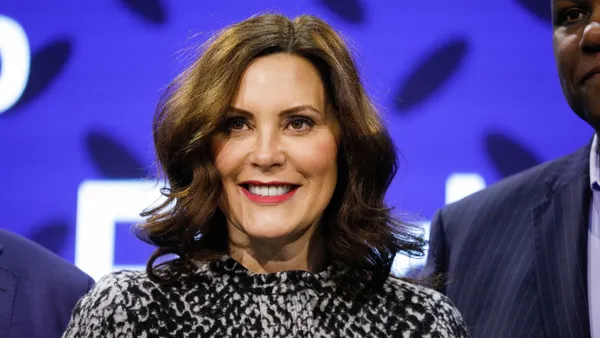Dive Brief:
- The Biden administration’s request for an extra $104 billion for the Internal Revenue Service beginning in 2026 would, over a decade, yield roughly $341 billion in added revenue from actions including tougher enforcement, according to IRS Commissioner Daniel Werfel.
- The IRS needs “the money to make sure that we’re sustaining what we’re able to achieve this year and beyond as the economy continues to grow in its complexity,” Werfel said Tuesday in testimony to the Senate Finance Committee.
- Already, with a funding increase provided under the 2022 Inflation Reduction Act, the IRS expect to increase revenue by $700 billion over a decade through enforcement actions against “millionaires and billionaires” who owe taxes, complex partnerships that hide income and corporations that shield profit and income in the U.S. by moving it to tax jurisdictions abroad, Werfel said.
Dive Insight:
Republican lawmakers, as part of an agreement on spending for this year, pressed President Joe Biden to cut $20 billion from $80 billion approved for the IRS in 2022 under the IRA.
The Treasury Department and IRS found in a study that a $20 billion rescission would undercut tax revenues by more than $100 billion over the next 10 years.
The Congressional Budget Office released a more modest forecast, estimating that a $20 billion budget cut would reduce revenues by $44 billion and increase the cumulative deficit by $24 billion over a decade.
“If Congress continues to cut the IRS’s funding — or if the Inflation Reduction Act funding expires and Congress doesn’t add more — we know what is going to happen,” Senate Finance Committee Chair Ron Wyden, D-Ore., said at the hearing.
“Wealthy tax cheats will have an easier time getting away with breaking the law, and it’ll be misery and higher costs for typical American taxpayers who are just trying to do their civic duty when tax filing season comes around every spring,” Wyden said.
As IRS funding shrunk from 2010 to 2019, the audit rate on large corporations and wealthy taxpayers fell by more than 50% and 70%, respectively, according to the Treasury. Meanwhile, the annual tax gap — or the difference between taxes owed and taxes paid — ballooned in the 2020-2021 tax year to $688 billion.
Werfel said the $104 billion requested in additional funding would go toward the IRS “base budget,” which he characterized as largely unchanged since 2010. The base budget is “too small to serve the tax system that we have today” given the increase in the number of tax filers and changes such as updates to the tax code and the advent of a “gig” employment.
“What we're asking for in the funding is to basically create a new baseline so the tax system continues to grow,” Werfel said. “It’s not about asking for more and more and more money to build an ever-increasing IRS.”
The IRS is updating and streamlining operations under a “modernization budget” that, under current legislation, would begin to dry up in 2026, Werfel said.
“If you look at 2026, we lose all of our ability to maintain services,” he said. “If you look at 2028, 2029 we lose all of our ability to maintain technology, because there's a cliff.”
The $104 billion in supplemental funding “is really just intended to address the cliffs in the out-years,” Werfel said.
The IRS chief faced push back from Republicans including Sen. Mike Crapo from Idaho, the committee’s ranking member.
“Despite claims that the $80 billion in new funding would ‘transform the IRS into a 21st century agency,’ the president’s budget request indicates otherwise,” Crapo said.
“When will it stop?” Crapo asked Werfel, referring to requests for more funding. “When is it going to end?”













